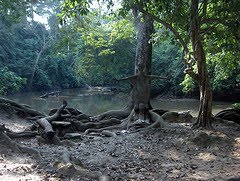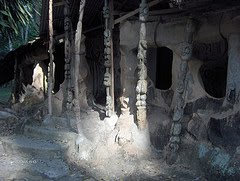AWORI PEOPLE, Rather Than Benin Empire FOUNDED LAGOS
There is no historical evidence to show that Benin founded Lagos or Eko. All other ethnic groups, except Awori People in Eko now Lagos, were traders.
The city of Lagos, historically known as Eko, has a complex and multi-ethnic history. The origin of Lagos predates the Benin Empire, and it was initially inhabited by the Awori people, an indigenous Yoruba ethnic group. The Awori people were likely the first settlers in the area.
While the Benin Empire, centered around the city of Benin in present-day Edo State, had a significant influence in the region, there is no evidence to suggest that the Benin Empire directly founded Lagos. The Benin Empire was more inland, and its major interactions with coastal regions were often related to trade rather than territorial expansion.
Lagos, due to its coastal location, became a hub for trade and commerce over the centuries, attracting various ethnic groups and external influences. The Oba of Lagos, a traditional ruler, played a prominent role in the city's history, and relationships with neighboring kingdoms and empires were formed through trade and diplomacy.
While the Benin Empire had influence in the broader region, Lagos was likely founded by the Awori people, and its history involves a combination of indigenous developments, trade interactions, and cultural influences from various sources.
Meanwhile, during disagreement between Olofin and an affluent woman named Aina, the Oba of Benin attempted to settle these Iddo Island matters. In response to Aina's request for an investigation into the issue, the Oba dispatched envoys. Arriving in a canoe, the men took the fishing gear on the shore to be signals of distant war preparation. They reported their findings to the Oba upon their return, and he accepted a challenge by sending them back into combat with military backing. Following Olofin's defeat and capture, Aseru, a war chief who was a part of these reinforcements, stayed behind on the island of Iddo. He continued to fight other nearby villages, reaching as far as Iseri, where he finally passed away. Then, a certain Asipa returned his corpse to Benin. He was awarded by the Oba with the title of king of Iddo Island for his deed. The royal drum, known as the Gbedu, which the Obas of Lagos still beat, was also presented to Asipa. His son Ado rose to become Lagos's first king, and his ancestors still lead the Obas of Lagos today.
It's vital to remember that the specifics of this story are based on oral traditions. Although they offer insights into the historical contacts in the area, the nature of oral history makes it difficult to confirm the truth of precise details. However, the story emphasizes how interrelated the different groups were to one another and how important regional powers were in resolving disputes at that time.
Feel free to disagree, and provide evidence for your argument.








